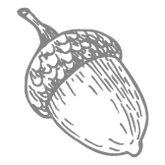
Why Use an End-of-Life Doula?
The Full Story
End of Life Doulas, or EOLDs also called Death Doulas or Death Midwives, enrich the dying experience for patients, family members and friends, while strengthening the relationship between medical (the doctors, nurses, social workers) and non-medical support (the family or caretakers). We are trained professionals who provide assistance and guidance with holistic services to individuals and their families during transformative life changes.
Doula-client relationships engage the difficult and complex emotions while navigating the signs and symptoms of the dying process. An end of life care team is made up of multiple different professionals ranging from doctors, nurses, social workers, and End of Life Doulas to foster a culture of equity in order to facilitate a good death. We strive to be a support system for those who are terminally ill, elderly, or healthy and their families as they plan for their transition. A death doula's work ranges from logistical planning for the time before, during and after of death; conducting rituals or comforting practices; helping the dying person reflect on their life and values; and explaining the bodily functions of dying to caregivers.
Doulas are an active part of the Death Positive movement, a social and philosophical movement that encourages people to speak openly about death, dying, and everything in between. Death Positive seeks to eliminate the silence around death-related topics, decrease anxiety surrounding death, and dismantle the foundation of inequality, racism, and social marginalization at end of life (Johnson, 2021).
The
Difference
Death doulas are NOT competitors with funeral service but rather complement the death care industry by providing additional support and community resources for deceased and their families. There are laws governing what death doulas can and cannot do just as with traditional death care. Funeral directors interact with families post death while end of life doulas are present with families before, during, and after death occurs.
The difference between hospice and death doulas is that death doulas do not provide medical care. Instead, death doulas work in conjunction with hospice programs to provide interpersonal, social, logistical, and spiritual guidance that complements the care they receive in hospice.
Death Doulas are here to serve humanity. We serve anyone ranging from young, elderly, terminally ill, healthy, caretakers and even pets. End of life doulas complement the care from hospitals, hospices, and funeral homes by filling in the gaps that occur during the dying process.
I follow all applicable laws related to protected health information. While not every use and disclosure of your health information can be described in this statement, I have highlighted the most common ones. For Treatment I may use and share your health information to provide, coordinate, or manage your health care and related services, both with providers and with others, including outside providers, involved in your care. I may need to share your diagnosis with outside providers and community agencies so they can support your recovery after hospital discharge or during the dying process. I might also share your information with a registry to gain insights about how to improve the way I treat your situation and coordinate your care. I may use and share your health information to tell you about possible treatment options or alternatives that may interest you. I encourage you to carefully review any terms of use that may apply to the apps or other tools that you may use, as I am not responsible for what they do with your information.



